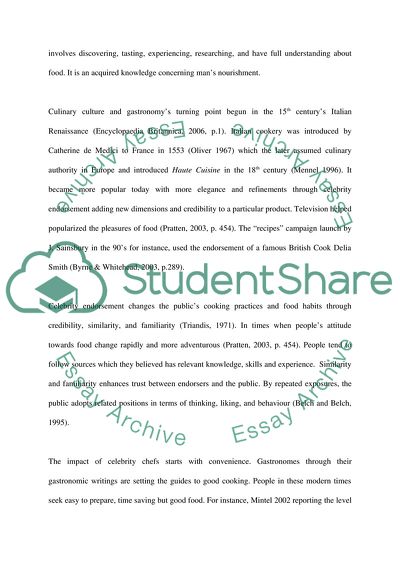Cite this document
(“What extent famous chefs and gastronomes influence ideas of 'taste', Essay”, n.d.)
What extent famous chefs and gastronomes influence ideas of 'taste', Essay. Retrieved from https://studentshare.org/health-sciences-medicine/1531861-what-extent-famous-chefs-and-gastronomes-influence-ideas-of-taste-styles-of-cookery
What extent famous chefs and gastronomes influence ideas of 'taste', Essay. Retrieved from https://studentshare.org/health-sciences-medicine/1531861-what-extent-famous-chefs-and-gastronomes-influence-ideas-of-taste-styles-of-cookery
(What Extent Famous Chefs and Gastronomes Influence Ideas of 'Taste', Essay)
What Extent Famous Chefs and Gastronomes Influence Ideas of 'Taste', Essay. https://studentshare.org/health-sciences-medicine/1531861-what-extent-famous-chefs-and-gastronomes-influence-ideas-of-taste-styles-of-cookery.
What Extent Famous Chefs and Gastronomes Influence Ideas of 'Taste', Essay. https://studentshare.org/health-sciences-medicine/1531861-what-extent-famous-chefs-and-gastronomes-influence-ideas-of-taste-styles-of-cookery.
“What Extent Famous Chefs and Gastronomes Influence Ideas of 'Taste', Essay”, n.d. https://studentshare.org/health-sciences-medicine/1531861-what-extent-famous-chefs-and-gastronomes-influence-ideas-of-taste-styles-of-cookery.


